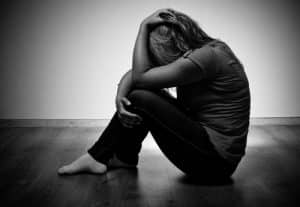The Connection Between Physical & Emotional Pain
February 7, 2019

This connection can be a good thing though! It’s not a roadblock, but it can be a pathway to help you gain better control over your pain.
Pain & Emotion in the Brain
Recently, the emotional component of pain has been explored more by the scientific community. A new definition of pain by the International Association for the Study of Pain describes it as an “unpleasant sensory and emotional experience.” This supports the idea that the brain has evolved some overlap between its emotion and pain centers. This design allows the brain to efficiently process a wide range of sensations, such as a bruised knee, a cut finger, anger, and sadness.
If you think about it, pain is always a physical and emotional experience. If you stub your toe, you feel physical pain — your toe hurts, but you will probably also be mad at yourself for being clumsy or at someone else for leaving a box in the middle of the hallway for you to run into.
Stubbing your toe is a small example, but when you are continually exposed to emotional pain, there are changes in the brain that produce a dependency on those feelings. And while this emotional pain can be significant and debilitating, when it continues for a prolonged period of time, it also can end up affecting your physical health as well. In some instances, emotional pain can cause physical pain.
Daily Challenges
The connections are extensive, and many times those who are experiencing chronic pain that causes emotional pain are affected in their daily lives. You may avoid exercise and social interaction, two activities that can sometimes provide pain relief. Sadness, depression, or anxiety are emotions that are more likely to contribute to this.
Waking up every day with aches and pain that won’t go away can lead to frustration, resentment, and stress. People with chronic pain are also more likely to develop mood or anxiety disorders. At the same time, depressed patients have three times the risk of developing chronic pain. It’s a cycle that is difficult to break.
Emotions Can Help With Pain
Understanding that emotions play a role in how we experience pain may provide some comfort. There is value is just knowing this and realizing that what you are experiencing is normal. The best approach is to tackle your pain from every angle possible and seek help from medical professionals. There are many options for dealing with chronic pain, from being evaluated by a pain physician at Southside Pain Specialists, working with a psychologist, to trying methods for relief such as yoga. Exercise can be an excellent treatment for pain.
Southside Pain Specialists is your one-stop for pain management in the Birmingham, AL area
With a multitude of pain relief options tailored to your specific needs, Southside Pain Specialists follows the standards of the American Society of Interventional Pain Physicians, The American Board of Pain Medicine and the International Spinal Injection Society. Southside Pain Specialists works hard to provide patients comprehensive, caring pain relief when they need it most. Check out our website or contact us today at 205.332.3155 to learn more.
